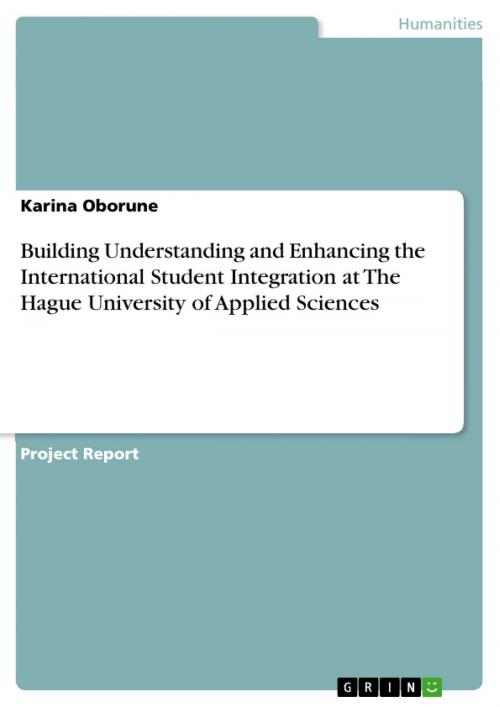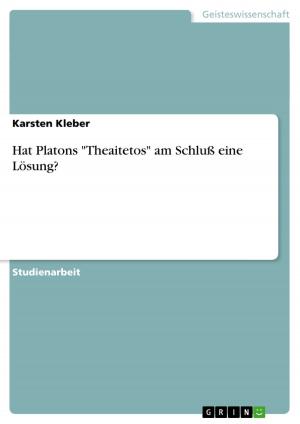Building Understanding and Enhancing the International Student Integration at The Hague University of Applied Sciences
Nonfiction, Reference & Language, Language Arts, Communication| Author: | Karina Oborune | ISBN: | 9783668166271 |
| Publisher: | GRIN Verlag | Publication: | March 7, 2016 |
| Imprint: | GRIN Verlag | Language: | English |
| Author: | Karina Oborune |
| ISBN: | 9783668166271 |
| Publisher: | GRIN Verlag |
| Publication: | March 7, 2016 |
| Imprint: | GRIN Verlag |
| Language: | English |
Project Report from the year 2014 in the subject Sociology - Communication, grade: A, The Hague University, course: Master in International Communication, language: English, abstract: When students are traveling to study abroad, they may face different issues such as loneliness, isolation, discrimination that may affect their academic performance and cause stress and mental health problems directly or indirectly. Di Tommaso and Spinner found out that integration into social networks is the best predictor of lower levels of social loneliness. Universities provide support for international students and it is intended to facilitate an optimal (from the point of view of the universities) academic and social adjustment, however, causing boring and lonely social life 'outside the classroom' and feeling a lack of belonging contribute to their sense of alienation in the host society. Due to the heavy study load and stress and because of lack of time, international students tend to have more in-door activities. Because of the developed technologies and internet, most of them prefer to communicate through social media: especially when they encounter problems in their daily life, they tend to search solutions via social channels on internet. Moreover, the media channels that The Hague University of Applied Sciences (hereinafter HHS) uses now seems not to be adequate for integration. HHS uses media tools such as blackboard and emails to communicate with the students, and students could theoretically build up certain conversation via blackboard. However, students consider both channels as 'formal' channels that are one-way communication channels instead of desired social channels which is two-way communication. In other words, students expect an effective mediator that can help them to understand and to adapt to the new studying and living environment. Hence, it is important to develop effective media channels that will contribute to integration among international students at HHS by providing recommendations for improvement in media channels and exploring possible solutions to the problem. Project Objective: To develop a communication plan aimed at integrating international students at the Hague University by providing recommendations for improvement of media channels. Advice Question: How to use media channels in order to enhance integration of the international students at The Hague University of Applied Sciences? Research Question: What are the factors that contribute to establishing of an effective media platform in order to improve the integration of international students?
Project Report from the year 2014 in the subject Sociology - Communication, grade: A, The Hague University, course: Master in International Communication, language: English, abstract: When students are traveling to study abroad, they may face different issues such as loneliness, isolation, discrimination that may affect their academic performance and cause stress and mental health problems directly or indirectly. Di Tommaso and Spinner found out that integration into social networks is the best predictor of lower levels of social loneliness. Universities provide support for international students and it is intended to facilitate an optimal (from the point of view of the universities) academic and social adjustment, however, causing boring and lonely social life 'outside the classroom' and feeling a lack of belonging contribute to their sense of alienation in the host society. Due to the heavy study load and stress and because of lack of time, international students tend to have more in-door activities. Because of the developed technologies and internet, most of them prefer to communicate through social media: especially when they encounter problems in their daily life, they tend to search solutions via social channels on internet. Moreover, the media channels that The Hague University of Applied Sciences (hereinafter HHS) uses now seems not to be adequate for integration. HHS uses media tools such as blackboard and emails to communicate with the students, and students could theoretically build up certain conversation via blackboard. However, students consider both channels as 'formal' channels that are one-way communication channels instead of desired social channels which is two-way communication. In other words, students expect an effective mediator that can help them to understand and to adapt to the new studying and living environment. Hence, it is important to develop effective media channels that will contribute to integration among international students at HHS by providing recommendations for improvement in media channels and exploring possible solutions to the problem. Project Objective: To develop a communication plan aimed at integrating international students at the Hague University by providing recommendations for improvement of media channels. Advice Question: How to use media channels in order to enhance integration of the international students at The Hague University of Applied Sciences? Research Question: What are the factors that contribute to establishing of an effective media platform in order to improve the integration of international students?















